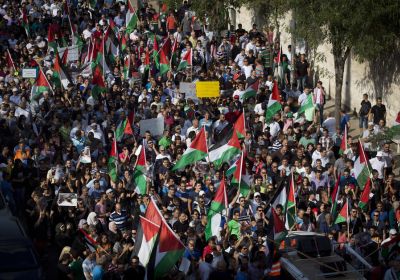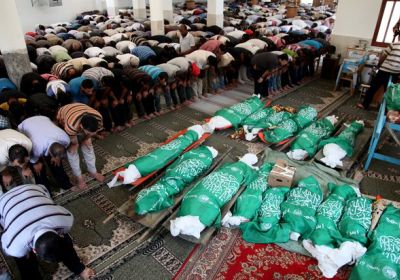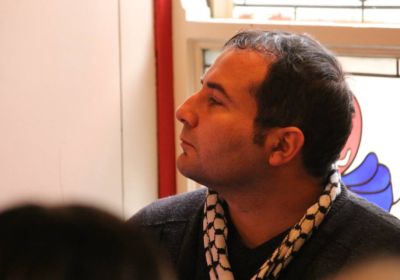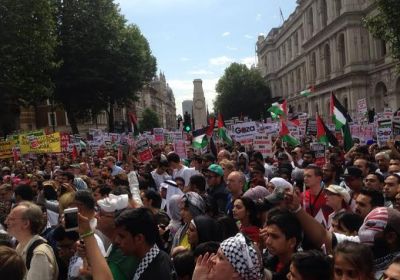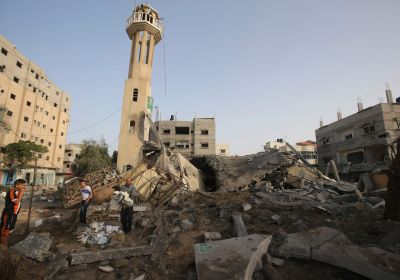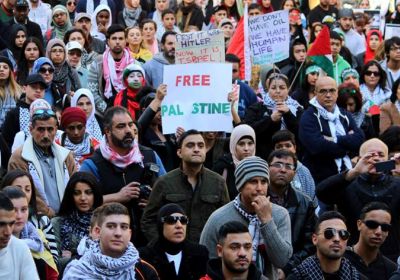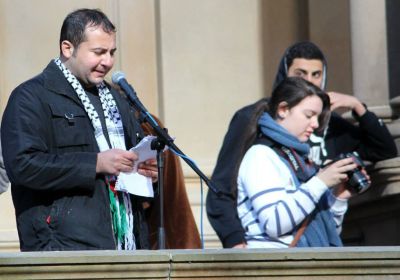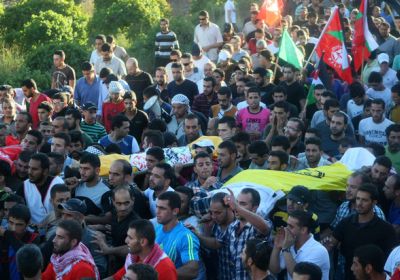
Tens of thousands of Palestinians marched across the West Bank on July 25, following large protests the day before that in with Israeli bullets.
The largest rallies in years in the occupied territory came as Israel's ongoing assault on the Gaza Strip killed at least 850 people, including hundreds of children.
Israel has fired on protesters, shooting at least nine dead, Electronic Intifada said that day.
